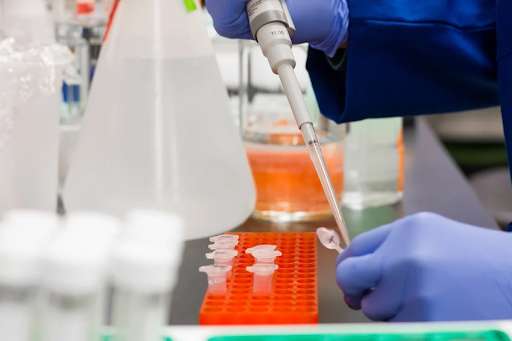In the fast-evolving healthcare industry, startup medical labs are emerging as key players, driving advancements in diagnostics and therapy. But every medical lab requires advanced equipment to function optimally. By 2032, the market for laboratory equipment is expected to grow to $39.64 billion from its estimated value of $14.18 billion in 2022.

To stay competitive and contribute to healthcare advancements, these labs must equip themselves with cutting-edge tools. From analytical instruments and lab essentials to diagnostic tools and cold storage equipment, each component plays a crucial role in ensuring efficiency and reliability. By investing in the right equipment, startup medical labs can shape a successful future in the dynamic world of healthcare. This blog post highlights the essential equipment every startup medical lab should possess for top-tier service provision in 2023 and beyond.
The Crucial Role of Medical Lab Equipment
Medical lab equipment serves as the bedrock of any lab’s operations. Their functionality underpins the efficiency and accuracy of every process, from routine checkups to intricate research. Having the correct lab equipment is akin to having a strong foundation when building a house. It enables accurate diagnoses, paves the way for new medical discoveries, and supports the progression of innovative treatments.
Overview of Essential Medical Lab Equipment
The essential medical lab equipment can be broadly categorized into analytical instruments, lab essentials, diagnostic tools, and cold storage equipment.
Analytical instruments such as microscopes remain fundamental to a medical lab’s operation. They measure the light spectrum to determine the concentration of a substance in a sample, which is key in various analytical applications. Furthermore, chromatographs help in separating mixtures for analysis, which is crucial for identifying the constituents of complex substances.
In the lab essentials category, there are also pieces of equipment such as autoclaves, which are paramount in maintaining the sterility of lab tools. They provide high-pressure steam to eliminate bacteria and other harmful microorganisms. Centrifuges, on the other hand, support sample preparation. By spinning samples at high speeds, they separate the components based on their densities, making analysis easier. Lastly, precision tools like pipettes handle liquids in accurate volumes, preventing errors during testing and experiments.
Additionally, a noteworthy asset for startup medical labs is the microplate washer. This advanced equipment automates the washing process for microplates, offering benefits such as efficiency, accuracy, and sample preservation, making it indispensable for modern medical labs.
A good microplate washer has automation capabilities to streamline laboratory workflows, saving time and reducing the risk of human errors. Its integration with other automated systems further enhances its versatility, enabling startup medical labs to handle a wide range of applications with precision and reliability.
On the diagnostic front, hematology analyzers are irreplaceable tools. They facilitate a comprehensive analysis of blood samples, leading to a more precise diagnosis. In a similar light, coagulation analyzers diagnose blood clotting disorders, which are essential in the prevention and treatment of numerous health conditions. Immunoassay analyzers, meanwhile, can detect diseases in their early stages, enabling swift medical intervention.
Cold storage equipment such as freezers and refrigerators plays a critical role in preserving samples and storing sensitive materials at controlled temperatures. This ensures the integrity of the samples remains intact, preserving their validity for future use.
Latest Innovations in Medical Lab Equipment
As we navigate through 2023, we’re witnessing a multitude of advancements in medical lab equipment. Artificial intelligence (AI) has penetrated the industry, providing AI-based equipment that offers an unprecedented level of accuracy and efficiency. These tools enhance medical practices by reducing human error and boosting the speed of diagnosis and analysis.
In addition, the concept of lab automation has also come to fruition. Automated tools, capable of performing routine tasks, are proving instrumental in enhancing productivity and accuracy. They’re reducing the time it takes to complete procedures, improving efficiency, and allowing healthcare professionals to focus on more complex tasks.
Legal and Safety Considerations
When acquiring medical lab equipment, keeping local and international safety standards in mind is crucial. These are put in place to protect lab workers and patients from potential harm. Adherence to these guidelines also secures the credibility of the lab and its findings. Legal rules are constantly evolving to keep pace with modern medicine and though it can be difficult to understand them, they’re a strict necessity. For instance, the LDT regulation laws have changed, requiring new equipment and greater oversight of these tests by the FDA. These sorts of diagnostic tests are used in many different medical branches, so it’s crucial for any new lab to stay up-to-date on the requirements to enact them safely.

Financing and Purchasing Considerations for Startup Medical Labs
For any startup medical lab, budgeting, and financial planning are as critical as selecting the right equipment. It’s essential to evaluate whether purchasing or leasing equipment is the most financially viable option. Leasing can be more affordable in the short term, but ownership has its long-term advantages.
Considering second-hand or refurbished equipment is another viable alternative. While they may come at a lower cost, it’s vital to ensure they meet all necessary standards and perform effectively.
Conclusion
In conclusion, a new medical lab will not be able to do its job properly or be successful without the right equipment. To maintain their status as industry leaders, these labs must make significant investments in cutting-edge facilities. They will be able to better assist patients and advance medical knowledge through improved diagnosis, treatment, and research.

